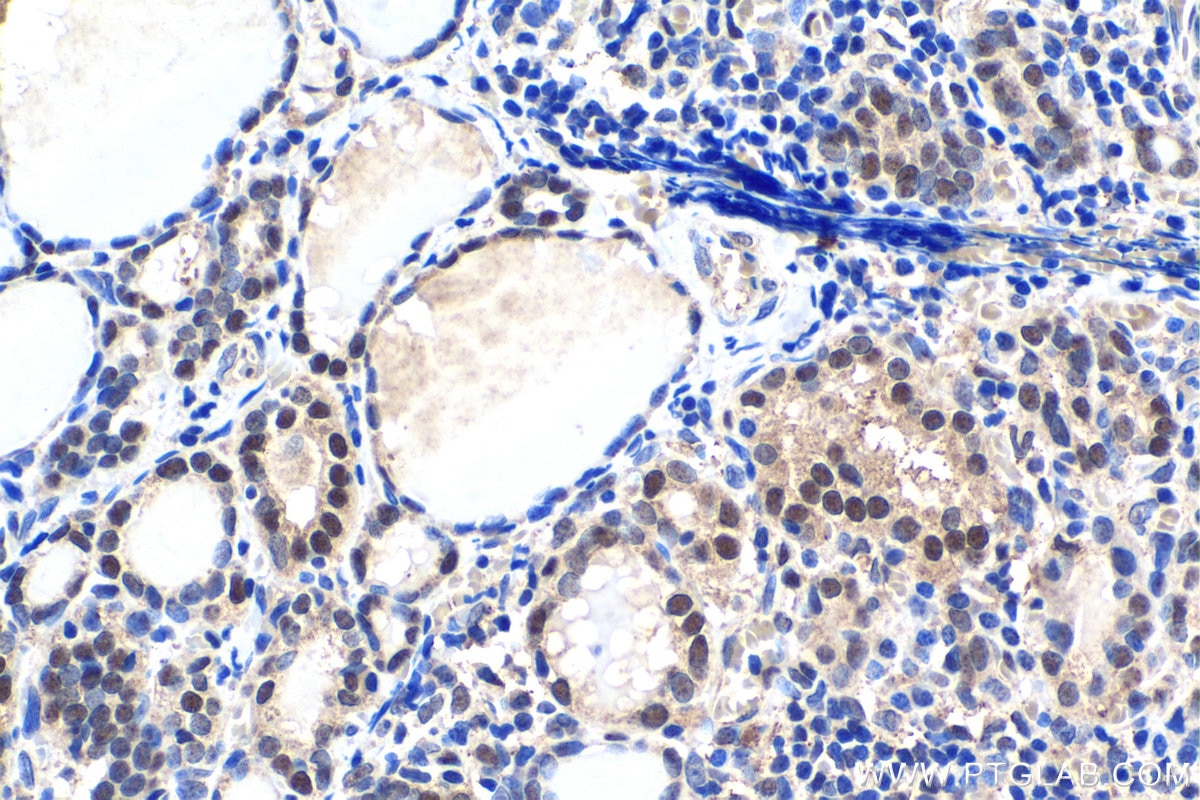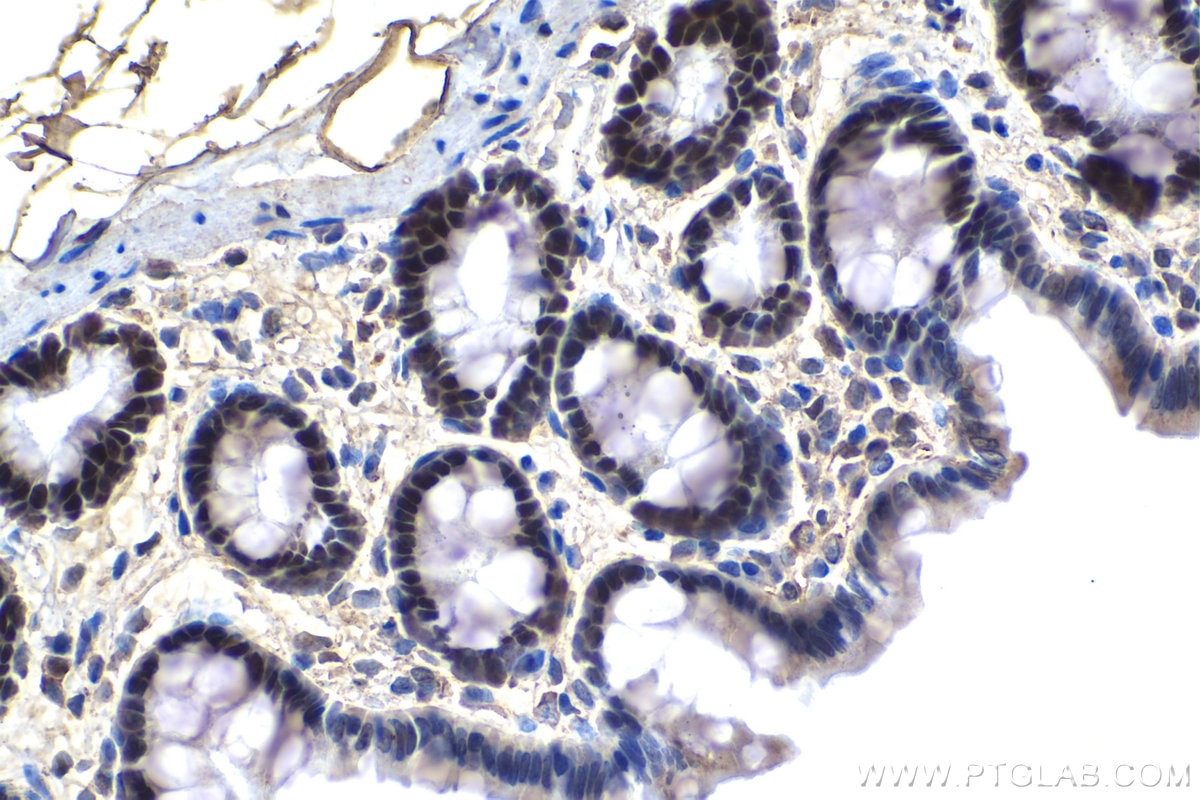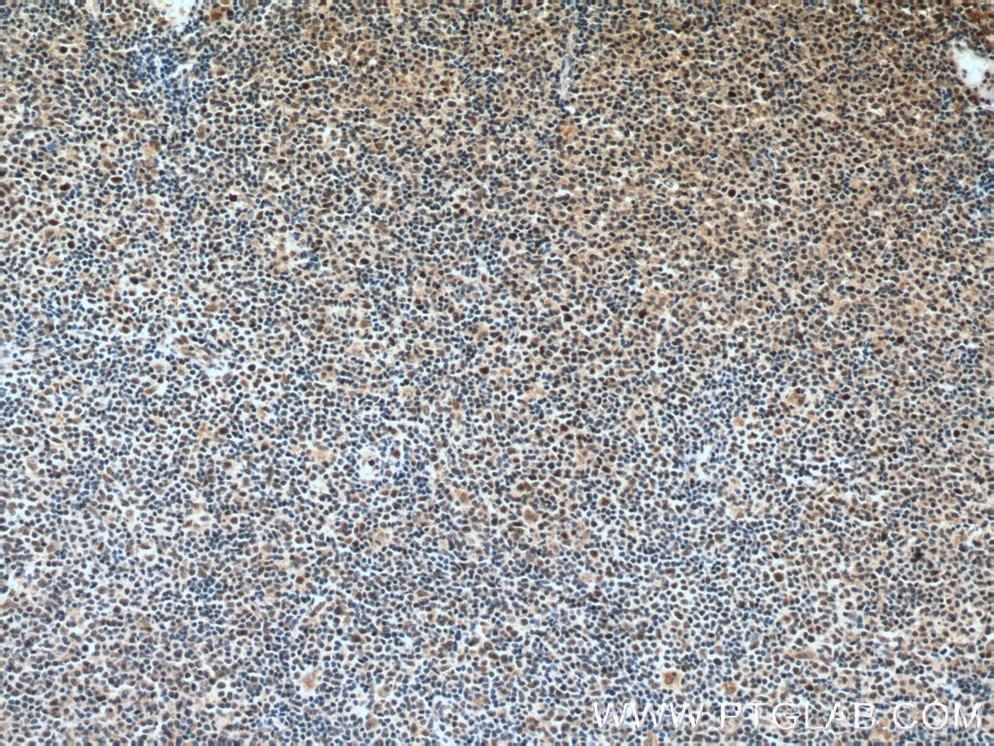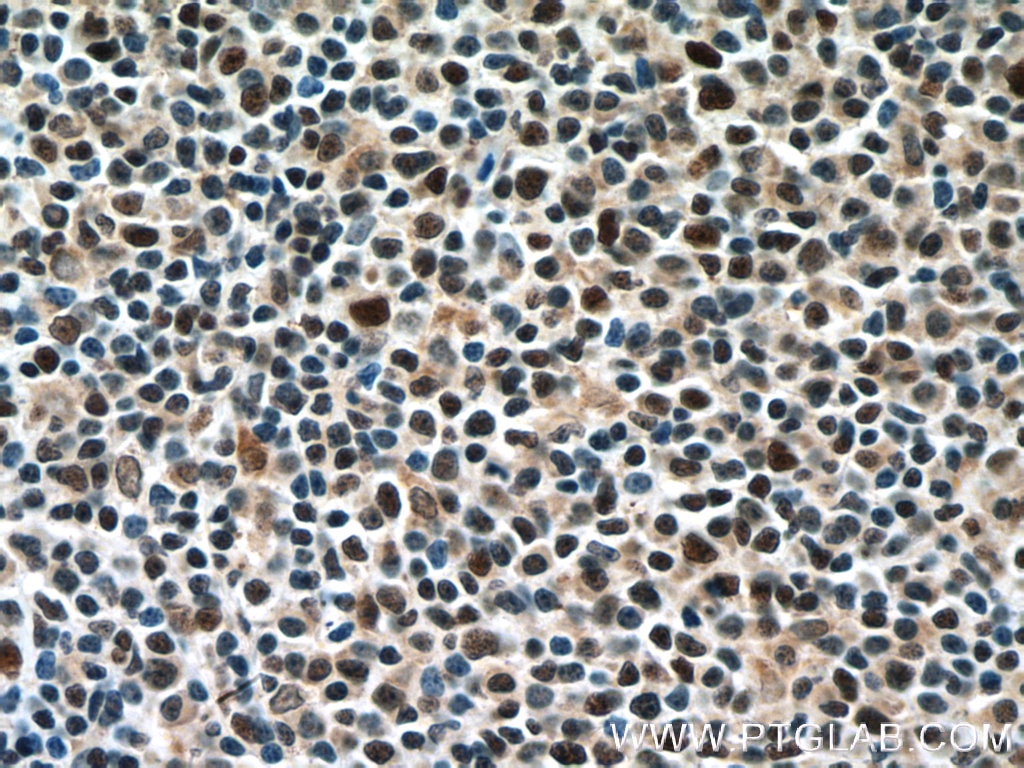Tested Applications
| Positive IHC detected in | human thyroid cancer tissue, human lymphoma tissue, rat colon tissue Note: suggested antigen retrieval with TE buffer pH 9.0; (*) Alternatively, antigen retrieval may be performed with citrate buffer pH 6.0 |
Recommended dilution
| Application | Dilution |
|---|---|
| Immunohistochemistry (IHC) | IHC : 1:100-1:500 |
| It is recommended that this reagent should be titrated in each testing system to obtain optimal results. | |
| Sample-dependent, Check data in validation data gallery. | |
Product Information
10480-1-AP targets Prothymosin Alpha in IHC, ELISA applications and shows reactivity with human, rat samples.
| Tested Reactivity | human, rat |
| Host / Isotype | Rabbit / IgG |
| Class | Polyclonal |
| Type | Antibody |
| Immunogen | Prothymosin Alpha fusion protein Ag0732 Predict reactive species |
| Full Name | prothymosin, alpha |
| Calculated Molecular Weight | 12 kDa |
| GenBank Accession Number | BC003510 |
| Gene Symbol | Prothymosin Alpha/PTMA |
| Gene ID (NCBI) | 5757 |
| RRID | AB_2174388 |
| Conjugate | Unconjugated |
| Form | Liquid |
| Purification Method | Antigen affinity purification |
| UNIPROT ID | P06454 |
| Storage Buffer | PBS with 0.02% sodium azide and 50% glycerol, pH 7.3. |
| Storage Conditions | Store at -20°C. Stable for one year after shipment. Aliquoting is unnecessary for -20oC storage. 20ul sizes contain 0.1% BSA. |
Background Information
Prothymosin alpha (PTMA) is a nuclear protein possessing a number of cellular functions including cell survival. PTMA is identified to be localized in the nuclei of neurons, while it is found in both nuclei and cytoplasm in the astrocytes and microglia of adult brai. PTMA inhibits the neuronal necrosis induced by serum-free starvation or ischemia-reperfusion stress, which causes a rapid internalization of GLUT1/4, leading a decrease in glucose uptake and cellular ATP levels. Extensive research on PTMA showed that it is of clinical significance and potential medical use as they may serve as a molecular marker for cancer prognosis and/or as therapeutic agents for treating immunodeficiencies, autoimmune diseases and malignancies.
Protocols
| Product Specific Protocols | |
|---|---|
| IHC protocol for Prothymosin Alpha antibody 10480-1-AP | Download protocol |
| Standard Protocols | |
|---|---|
| Click here to view our Standard Protocols |









